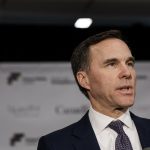How social media is changing politics and political reporting
What’s the appropriate level of snark in a tweet? And should you use Twitter as source material? These were just some of the questions up for discussion at two panels last week in Ottawa.
By Melanie Coulson
What’s the appropriate level of snark in a tweet? And should you use Twitter as source material? These were just some of the questions up for discussion at two panels last week in Ottawa.
The event, titled ‘On the Hill, Online and in the loop: how social media is changing politics and reporting’ was co-presented by Carleton’s School of Journalism and Communication and the Canadian Journalism Foundation. Two panels of politicians and political reporters from both ends of the social media spectrum took to the stage.
Up first was a discussion with Ottawa’s top social media political reporters: Glen McGregor and David Reevely from the Ottawa Citizen, Kady O’Malley from CBC.ca, Joanna Smith from the Toronto Star and Nick Taylor-Vaisey from Macleans. Andrew Potter, managing editor at The Ottawa Citizen, moderated what he called “the most incestuous panel I’ve ever sat on.”
*All photos courtesy of Matthew Lee for the Canadian Journalism Foundation
The reporters all agreed on one thing: that while they use twitter a great deal, it is limited in its reach and as a tool.
“My concern is when people find sources on Twitter and that’s where it stops,” said Smith). “At some point we need to stop, pick up the phone and call someone. We need to do what we need to do to report a story.”
Taylor-Vaisey agreed, adding while what people say on twitter has value, you still need to go to a scene and follow up. He added that it’s important to remember that not everyone is on twitter.
Twitter rewards ‘zingers’
Reevely pointed out that Twitter by its nature rewards “zingers”. “That’s what is dangerous [about Twitter]. Your incentive becomes getting RT’ed,” he said. Reporters need to work beyond that, he added. Reevely said he uses Twitter to establish his credibility as a City Hall reporter focusing on urban planning. He added he tries to avoid the “zingers.”
“If you’re just a jerk, that’s going to show, count against you instantly,” he said.
With this point, O’Malley jumped in with her own personal twitter philosophy:
“Be nice, it doesn’t cost extra,” O’Malley said. “If you wouldn’t say something to someone's face, don’t tweet it.” Potter asked reporters what they thought about tweeting their personal life. McGregor said he was less concerned about providing details of his life than he was expressing an opinion on coverage.
O’Malley confessed, “I live tweet my life.”
“When I was first on twitter it gave me a way to reach a larger audience,” she said. “Now you know that if you follow me, you must be interested in at least one of my issues of interest, including books and Dr. Who.”
Related content on J-Source:
- J-Source liveblogged CJF J-Talk: How Social Media Is Changing Politics And Reporting
- The amplification effect of social media in real-time
- 10 buzzworthy announcements and pronouncements from Social Media Weekend 2013
Incestuousness of Twitter
Smith agreed that there is an incestuousness of #cdnpoli, the hashtag most commonly used on Parliament Hill, and that twitter can function as “a similar echo chamber” for followers.
She quickly added, “My [Twitter followers] would be wrong to assume that what they see on twitter is what we do all day.”
Taylor-Vaisey said that political reporters should disagree more and not be afraid to be critical. As an example, he mentioned Reevely’s live tweeting a city council meeting the night before the talk, which went to 11 p.m, and. Reevely tweeted there were no longer any broadcast media in the room.
“I don’t think he was being critical of his colleagues,” Taylor-Vaisey said. “But if everyone did that a little more, we might be more cognisant of what’s being put out there […]
“It would lead to a more robust parliamentary press gallery.”
Kady disagreed with Taylor-Vaisey, saying there was already “lots of respectful lively disagreement” in the parliamentary press gallery.
[node:ad]All panellists agreed that paying attention to social media can take time away from reporting, writing web hits, etc., and that newsrooms need to make a conscious decision on managing resources on social media without over-taxing a reporter in the field.
Humanizing politicians
When Potter asked the reporters what they thought about the humanizing of politicians through Twitter, McGregor said that reporters need to stop turning everything someone tweets into a news story.
He referred to NDP MP Pat Martin’s widely-covered anti-Vic Toews twitter rant in December, which led to Martin quitting the social media platform.
“We want people to show a little of themselves. If we start reporting every time [politicians] step out of line, they are going to revert to their talking points,” McGregor said.
Up next was the politicians panel including Marc Garneau, Liberal MP for Westmount-Ville Marie, Megan Leslie, NDP MP for Halifax and Ottawa mayor Jim Watson, Ottawa’s mayor with Chris Waddell, Director of Carleton’s School of Journalism and Communication moderated.
Independence when tweeting
Moderator Chris Waddell asked the politicians if they had a lot of independence when it came to tweeting.
“Well, if folks were controlled [by the party], we wouldn’t have Pat Martin’s tweets,” Leslie quipped to laughter from the audience.
She added that the NDP’s communications team makes suggestions as to what she should tweet, but that she controls her account.
Garneau said that there is a “sense of party discipline” among the Liberals, but because he recently ran as a candidate for leadership of the federal party, he had “an opportunity to freelance.”
“You can step out, talk about things would do if you were chosen as leader,” he said. “There are of course boundaries, but I’m allowed to say things. Now that I’m not campaigning, I have to remember I’m back in the party ranks.”
Politicians and the media
Leslie said that while it’s hard to judge the issues, it’s also difficult to judge the reach of her story. While Leslie might deliver a “zinger” that amused the parliamentary press gallery, she said she is often disappointed in how rarely this translates into a full story in mass media with wider reach.
Watson added that twitter is for him an effective way to stop incorrect information in its tracks. He noted a tweet he received from someone who hadn’t seen a snowplough at one of Ottawa’s suburban intersections.
“I happened to be there, and I saw the plough, so took a picture and tweeted it,” Watson said. He added “I didn’t hear back from them.”
He added that he always tweets his campaign schedule that he also gives to the media.
Meanwhile, Leslie said that Facebook allowed her to track comments; twitter “made me cry a lot.”
“I felt held hostage by my twitter account. People would tweet ‘what do you think about foreign trade, respond or you’re going to lose my vote’,” she said. She added that this was close to impossible in 140 characters.
Leslie said she also suffered a twitter whisper campaign that she didn’t live in the riding, (she rents rather than owns property), and is unsure what the 2015 campaign will be like.
Watson agreed that twitter followers often have “an unrealistic expectation that we're going to answer right away… It’s Impossible to get back to people right away.”
Melanie Coulson is a Michener-Deacon Fellow for Journalism Education at Carleton University for the winter term, 2013. In May, she returns as Senior Editor at the Ottawa Citizen. Coulson organized this event.
Tamara Baluja is an award-winning journalist with CBC Vancouver and the 2018 Michener-Deacon fellow for journalism education. She was the associate editor for J-Source from 2013-2014.






